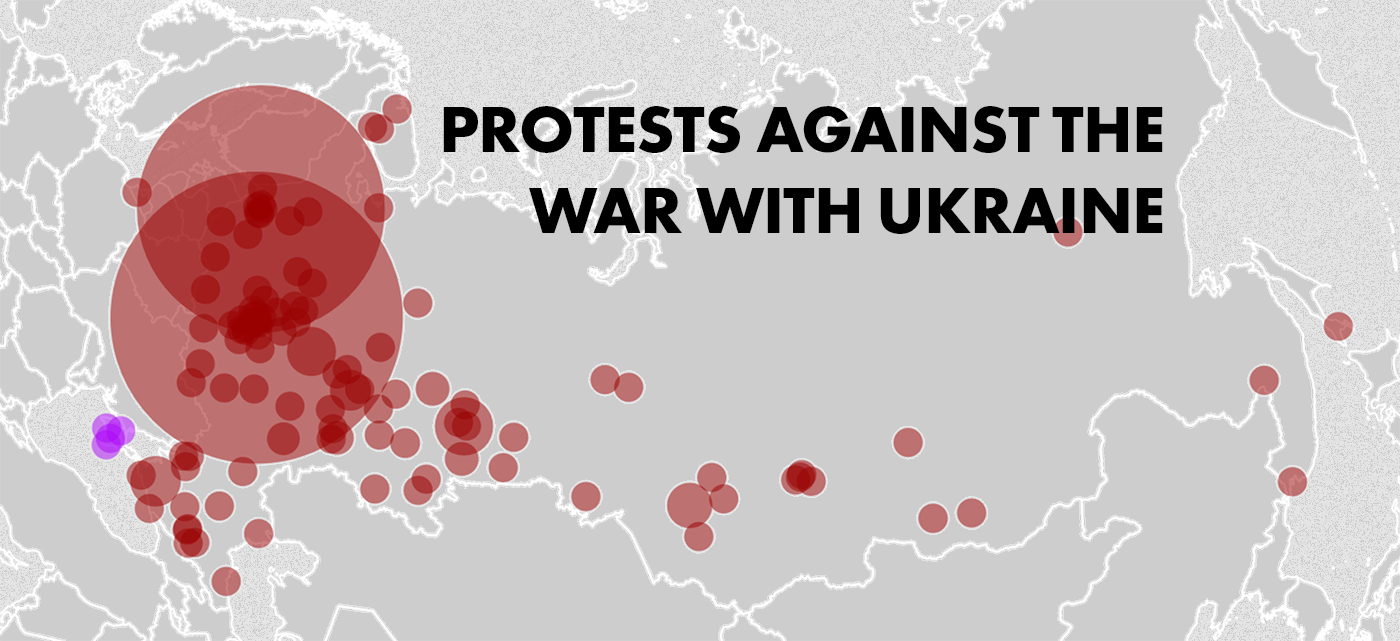By FRF Team
On February 24, 2022, over 100 deputies from different regions of Russia signed an open letter to the fellow citizens and condemned the military conflict with Ukraine. By March 5, the letter had been reportedly signed by 276 deputies of representative bodies of state power and local self-government. But due to the introduction of criminal and administrative liability for “discrediting the armed forces of the Russian Federation,” the names of the signatories have been since redacted.
The most noticeable dissent against the Kremlin’s decision to invade Ukraine has been shown by the members of the Communist party:
- On February 26, CPRF members, State Duma deputies from the Samara Region and the Omsk Region, Mikhail Matveyev and Oleg Smolin, respectively, publicly raised concerns about the war. They were joined by Vyacheslav Markhaev, CRPF member from Buryatia, who condemned Russia’s invasion of Ukraine on his Facebook page.
- On February 27, CPRF activists launched an anti-war initiative; anti-war groups appeared on VKontakte and Telegram. This work is reportedly done by members of regional and city branches of the party and the Komsomol throughout Russia. At the very core of the initiative are members of the Marxist Tendency movement.
- A Meduza source close to the party leadership in one of the Russian regions, called the war in Ukraine “imperialist” and noted that its conduct and support is contrary to the ideology of the Communist Party.
- Anti-war statements on social media were made by the Komsomol branches in Penza, Novosibirsk, Moscow and Saratov, but they were all removed within hours.
- The anti-war groups were later made non-public; regional party leaders also demanded that members left these groups. Some members reported the internal party order not to speak publicly about the war at all.
- Consequently, members who spoke against the war were expelled from the party, others were pressured, e.g.:
- In late February, in Komi, head of the Communist Party faction Viktor Vorobyov said in a statement on his Telegram channel that “what is happening in Ukraine has no justification in international law.” Vorobyov was stripped of his speech rights in the State Council for two meetings.
- Also in February, in Vladivostok, City Duma deputy Viktor Kamenshchikov resigned from the party and announced his readiness to lay down his deputy mandate due to disagreement with the invasion of Ukraine. “I am against war in principle,” he was quoted to have said.
- In March, Voronezh deputy Nina Belyaeva condemned the special operation, which resulted in her expulsion from the party and a criminal case against her.
- Also in March, in the Arkhangelsk region, the Communist Party expelled five members of the party for their anti-war appeals, including Alexander Afanasyev.
- Two more Communist party members were stripped of their membership in the Tambov Region.
- In late May, deputy of the legislative assembly of Primorsky Krai, Leonid Vasyukevich, publicly demanded that Putin withdraw troops from Ukraine (he was supported by four other party members): in response, the CPRF promised to apply “the toughest measures.” In June, Vasukevich and a fellow party member Gennady Shulga were expelled from the party.
Some members of other parliamentary parties also voiced their opposition to the war:
- In March, the deputy of the Ivanovo Regional Duma (the Just Russia–Patriots–For Truth), Sergei Shestukhin, refused his mandate, because “the political struggle in the country is over.” Earlier, the Ivanovo authorities wanted to remove his powers due to errors in old tax filings, and the party expelled him because of a post criticizing the special operation in Ukraine.
- Also in March, the head of the Penza branch of the Just Russia–Patriots–For Truth, Anna Ochkina, resigned on the grounds of “the abolition of democracy.”
- In April, at the Moscow City Duma’s meeting, Sergei Mitrokhin, former head of the Yabloko party, spoke publicly against the war.
- In April, St. Petersburg deputy Vladimir Volokhonsky during a meeting of the municipal council condemned the Russian invasion of Ukraine and called on the deputies of United Russia to “leave this party as quietly as possible,” since they are responsible not only for the government’s actions committed earlier, but also for the war crimes that are taking place on Ukrainian soil now.
In addition, the Yabloko party, which doesn’t have Duma representation, but holds a handful mandates in the Russian regions, has articulated its anti-war position since day one in its official statement. However, this position comes at a cost: one of its representatives, chairman of the Nizhny Novgorod branch Oleg Rodin, had to leave Russia after he discovered he had been under surveillance. This was preceded by Yabloko’s campaign against the war in Ukraine and the attack on the party’s regional office.


